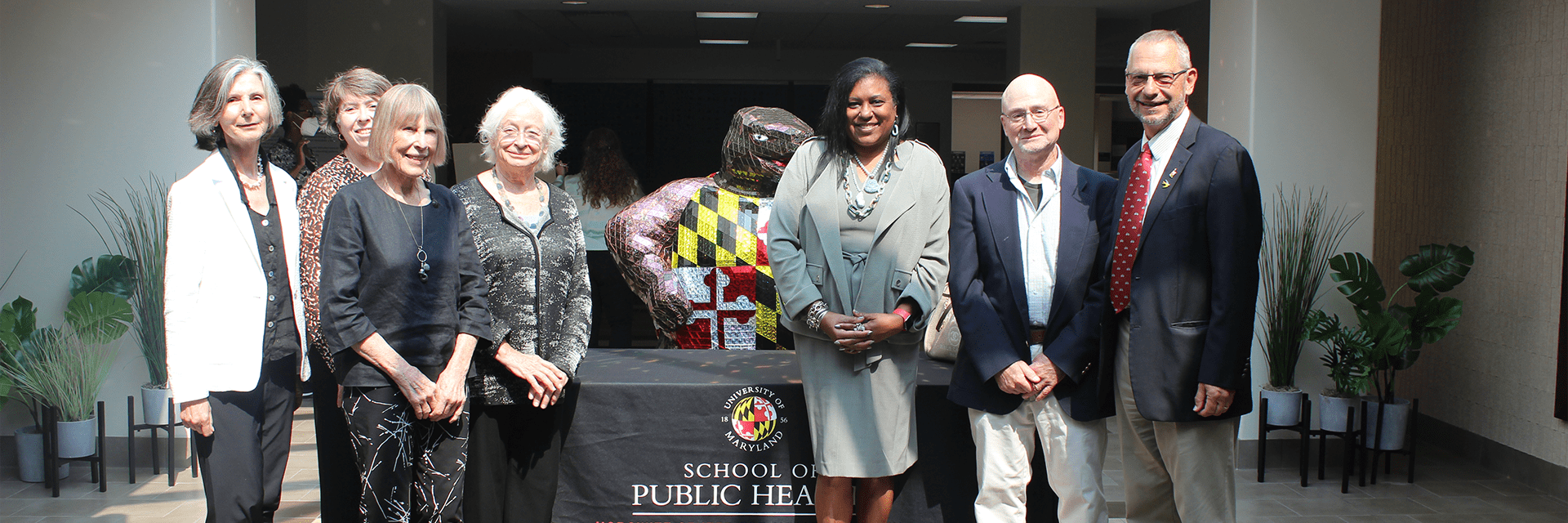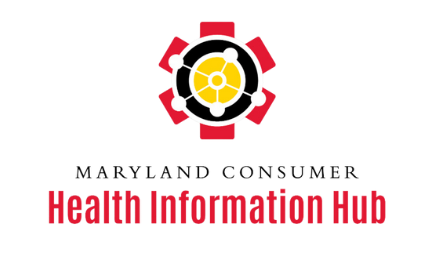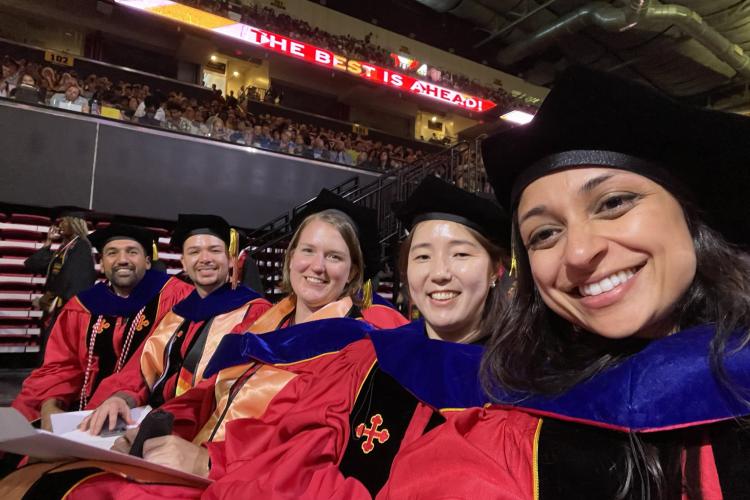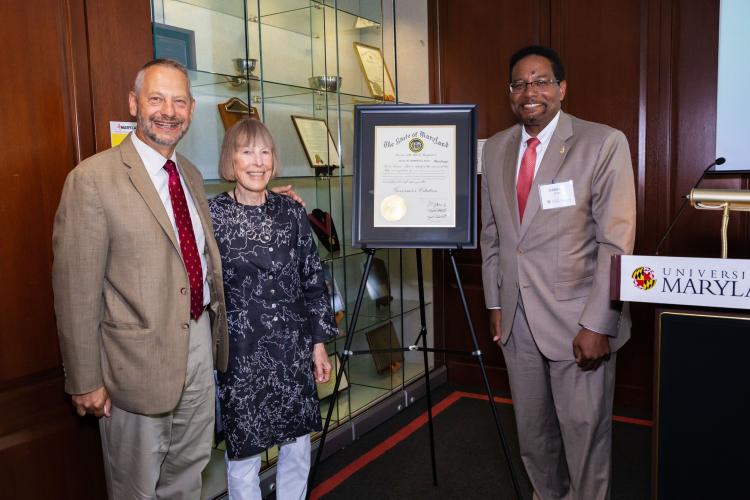
Horowitz Center for Health Literacy
The Center provides research, education, and service to improve health literacy at the individual, family, community, organization, and society levels. We aim to advance health literacy in Maryland and nationwide.
Four resources ground our work: Healthy People 2030 health literacy definitions, Federal Plain Language Guidelines, CDC's Clear Communication Index, and Culturally and Linguistically Appropriate Services (CLAS) standards.
The Center was endowed and honors the legacy of Dr. Herschel S. Horowitz, a prominent scientist, educator, and public health advocate.
Check out our new consumer health information on ways to keep your family healthy!
Upcoming Events
Monday, March 2, 2026 @10 AM EST | Webinar - Advancing Health Literacy in Maryland with the Health Literacy Organizational Seal Program
Join us for an engaging panel discussion on how state and local organizations are advancing health literacy through the Health Literacy Organizational Seal program. This webinar will showcase approaches from two organizations: the Maryland Insurance Administration and the Howard County Health Department. Speakers from each organization will explain how they are implementing health literacy as a standard operational process in their organization. Register now!
Featured speakers:
- Lisa de Hernández, Director of Communications, Howard County Health Department
- Craig Eye, Chief, Communications and Public Engagement, Maryland Insurance Administration
Consumer Health Information Hub 2026 Convenings
In spring 2026, the Maryland Consumer Health Information Hub will meet in three locations to make it easier to network, learn, and share information. Anyone interested in plain language, language access, and public information in Maryland can attend any or all three!
Participants may choose the most convenient date and location. Select your preferred location to be directed to a Google Form to register.
- Central Maryland – College Park, MD | March 24
- Western Maryland – Hagerstown, MD | April 8
- Eastern Maryland – Easton, MD | April 15
There is no cost to attend any of the meetings.
The meetings will begin between 9:30-10 AM and end between 12 noon and 1 PM, depending on location. Sign up now and stay tuned for the agendas.
What's New
Our 2025 Year in Review is live
The Horowitz Center for Health Literacy had a fantastic year with our partners and the Maryland Consumer Health Information Hub. We completed health literacy projects on COVID-19 communications, pandemic preparedness, and supported state and local partners to implement plain language in their communications and materials about health. Check out our 2025 Year in Review.
Maryland Health Literacy Organizational Seal
The Maryland Consumer Health Information Hub developed the Maryland Health Literacy Organizational Seal Program to recognize state and local agencies that prioritize clear communication with the public. The seal highlights how agencies have built health literacy insights and practices into their work. Check out the Seal.
Health Literacy and Misinformation Podcast
Join Horowitz Center Director Cynthia Baur as she talks about health literacy and misinformation with Maryland-based pediatrician Dr. Nicole Rochester for her Immune Deficiency Foundation podcast, Bold Conversations. Dr. Baur and Dr. Rochester discuss how misinformation relates to health literacy and why it's so attractive. They also talk about what organizations and individuals can do to reduce the impact of misinformation. Listen to the podcast.
Tools for Learning and Teaching Health Literacy
The Center for Health Literacy developed the Health Literacy Education Toolkit to support educators in colleges, universities and professional development programs to learn and teach the skills to effectively communicate health information for all audiences. You can use the Toolkit content in undergraduate and graduate programs in public health, medicine, nursing, pharmacy, dentistry, and social work. The Toolkit also includes health literacy training for Community Health Workers and clinicians. View the Toolkit.
Why Health Literacy is a Core Educational Competency
Chancellor Jay Perman, MD
Dr. Perman recorded the video below to open the first-ever meeting of University System of Maryland (USM) campus representatives to discuss health literacy educational activities. He explained his own experience seeing health literacy issues up close as a practicing pediatric gastroenterologist and the significance of health literacy as part of a USM education. The USM group intends to meet twice a year to share information and best practices in health literacy education and student opportunities.
Horowitz Center COVID-19 communications work
The Center provides health literacy and risk communication expertise on COVID-19. We use mass and social media, public presentations, community outreach, and expert consults.
Latest News
Featured Projects
HealthyMe/MiSalud
The Center is funded by NIH to develop and test HealthyMe/MiSalud, a smartphone application in English and Spanish to help African American and Hispanic adults set health goals, ask questions, and get personalized information about common health conditions and preventive services.
Diabetes Prevention
The Center leads and participates in multiple diabetes prevention projects in Maryland. We work with the Maryland Department of Health, local health departments, and Local Health Improvement Coalitions to implement the Maryland Diabetes Action Plan.
Oral Health
The Center leads and participates in many projects to educate the public, providers, and policymakers about oral health diseases and conditions and how to prevent them.




